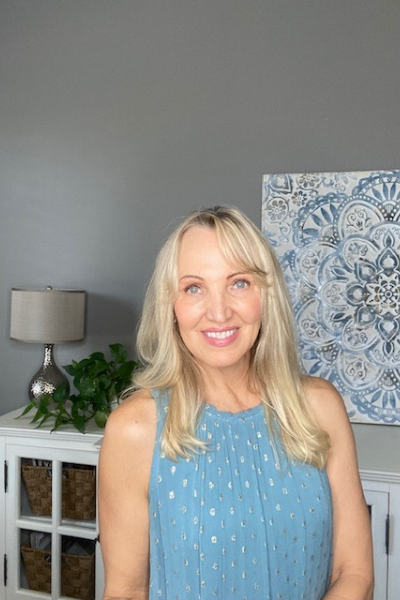Introduction:
Happiness. It’s something we all strive for, yet it often feels elusive—like a fleeting emotion we can’t quite control. But what if I told you that happiness isn’t just something that happens to you, but something you can cultivate? This idea, rooted in modern psychology and neuroscience, suggests that happiness may be more within our control than we once thought.
In the latest episode of my podcast, “The Extraordinary Everyday”, I explore the science of happiness and dive into the question: Can we really choose to be happy, or is it largely out of our hands? If you’ve ever wondered how much power you have to shape your own happiness, you’re in the right place. Let’s dig deeper into what the research says.
Understanding the Happiness Set-Point: How Much Control Do We Really Have?
Psychologists have long suggested that we each have a “happiness set-point”—a baseline level of happiness that we tend to return to, no matter what life throws our way. This set-point is believed to be influenced largely by genetics, making it seem like happiness is partly out of our control.
However, this doesn’t mean we’re destined to stay stuck at one level of happiness forever. While our genetics play a role, they only account for about 50% of our overall happiness. Another 10% comes from life circumstances—our job, income, relationships, and so on. That leaves a whopping 40% of our happiness influenced by “intentional activities” and how we choose to engage with the world around us.
This is where things get exciting. That 40% is entirely within our control.
Rewiring Your Brain for Happiness
One of the most fascinating discoveries in recent years is the concept of “neuroplasticity”—the brain’s ability to change and adapt throughout our lives. This means that, by making conscious choices, we can literally rewire our brains to be happier.
How does this work? Our brains are shaped by our thoughts, behaviors, and experiences. The more we repeat a certain thought or action, the stronger the neural connections in our brains become. If you’re constantly thinking negative thoughts or reacting to stress with worry, you’re strengthening those pathways. But if you intentionally focus on positivity, gratitude, and mindfulness, you can begin to carve out new neural pathways associated with happiness.
One of the most effective ways to start rewiring your brain is by practicing “gratitude”. Research shows that simply reflecting on what you’re grateful for each day can lead to significant improvements in well-being. Similarly, practices like mindfulness meditation can help you become more aware of your thoughts and feelings, allowing you to break free from negative thinking patterns.
Intentional Activities: Small Changes, Big Impact
What if I told you that small, daily habits could dramatically increase your happiness over time? Research-backed strategies from the field of “positive psychology” show that simple intentional activities can have a lasting impact on how happy we feel.
Here are three powerful activities you can start today:
- Gratitude Practice: Take a few minutes each day to write down three things you’re grateful for. They don’t have to be big—something as simple as enjoying a warm cup of coffee or having a great conversation with a friend can be enough. Over time, this practice shifts your brain’s focus from what’s wrong to what’s going right.
- Random Acts of Kindness: Doing something kind for someone else not only makes them feel good—it boosts your own happiness too. Whether it’s paying for a stranger’s coffee or offering a compliment, small acts of kindness have a ripple effect on well-being.
- Savoring Positive Moments: Instead of rushing through life, take the time to truly savor positive experiences. When something good happens, pause and fully immerse yourself in the moment. This helps solidify the memory and reinforces your brain’s pathways for joy.
But Is Happiness Always a Choice?
While there’s a lot we can do to influence our happiness, it’s important to acknowledge that happiness isn’t always a simple choice. For people dealing with mental health conditions like depression or anxiety, happiness can feel out of reach. These challenges are real, and they often require professional help to manage.
Even beyond mental health, life’s inevitable ups and downs—loss, hardship, stress—can make it difficult to focus on happiness. However, what we can control in these moments is our response to adversity. Practicing “resilience” means accepting life’s difficulties while still believing that joy and fulfillment are possible, even after challenging times.
Happiness doesn’t mean avoiding negative emotions. In fact, true happiness often comes from embracing the full range of human experience—allowing yourself to feel sadness, frustration, and disappointment when they arise, while also cultivating hope and optimism. It’s about finding balance, not perfection.
Takeaway: Small Shifts, Big Results
So, is happiness really a choice? The answer is a little more complex than yes or no. While we may not have control over every aspect of our happiness, we do have the power to make choices that lead to greater joy, resilience, and well-being.
The good news is that happiness is not fixed. With small, intentional changes in our daily lives, we can shift our mindset, reshape our brains, and ultimately create a happier, more fulfilling life. If you’re ready to take that next step, I invite you to listen to the full episode of *The Extraordinary Everyday*, where we explore the science of happiness in more depth and offer practical tips to boost your well-being.
Call to Action:
Are you ready to discover how much happiness is within your control? 🎧 Listen to the latest episode of “The Extraordinary Everyday” now, and start your journey toward a happier, more fulfilled life.
Final Note:
If you found this post helpful and want more tips on transforming your mindset, I’d love for you to join my email list. As a bonus, you’ll get access to my free Mindset Makeover download, designed to help you reframe negative beliefs and cultivate a positive, empowered mindset.
Looking for a supportive community of women who are also working on personal growth? Check out my membership program, More You, where we dive into topics like mindset, confidence, and living with purpose. You deserve to show up as your full self, and this membership is here to help you do just that.





